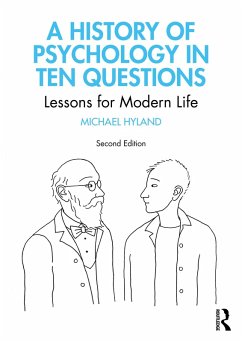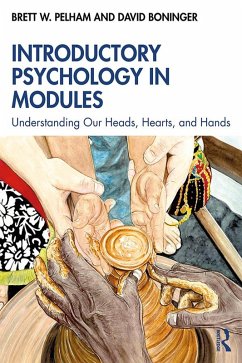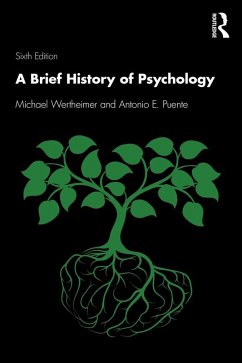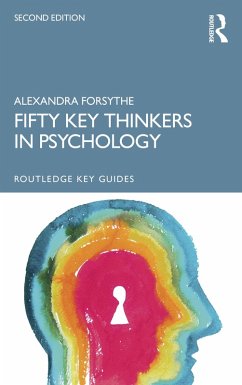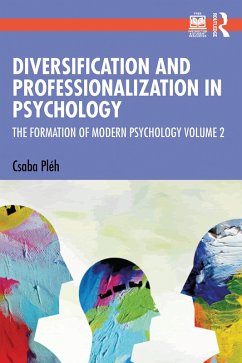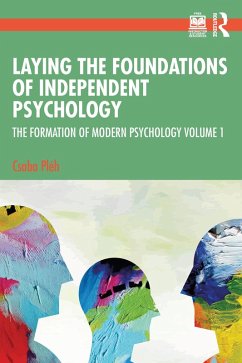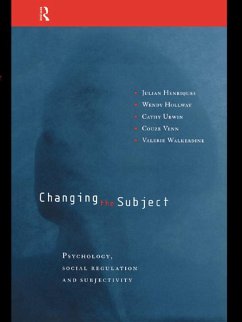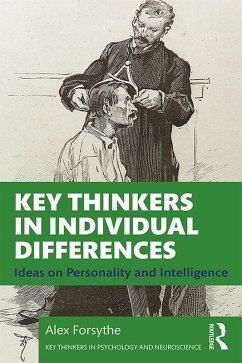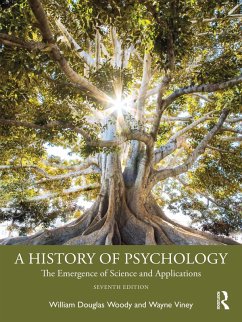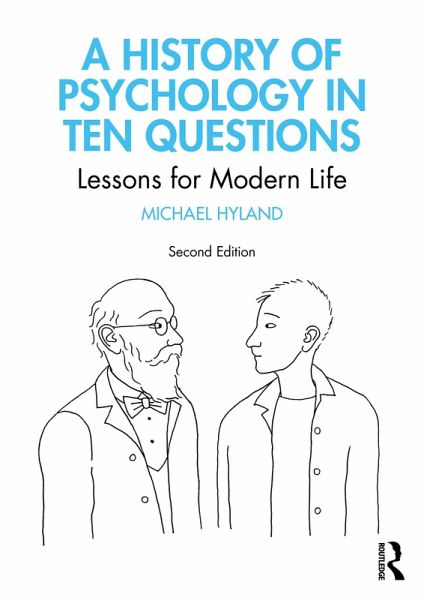
A History of Psychology in Ten Questions (eBook, PDF)
Lessons for Modern Life
Versandkostenfrei!
Sofort per Download lieferbar
39,95 €
inkl. MwSt.
Weitere Ausgaben:

PAYBACK Punkte
20 °P sammeln!
The second edition of this student-friendly book uses the history of psychology as a backdrop to provide a commentary on key historical developments and modern dilemmas, whilst encouraging readers to think about questions affecting life today.How do you know if something is true? How do you explain and control behaviour? What is the relation between psychology and physiology? How will artificial intelligence affect humanity? This book answers these and other questions by covering a wide range of topics in psychology, including neuroscience, personality, behaviourism, cognitive and humanistic p...
The second edition of this student-friendly book uses the history of psychology as a backdrop to provide a commentary on key historical developments and modern dilemmas, whilst encouraging readers to think about questions affecting life today.
How do you know if something is true? How do you explain and control behaviour? What is the relation between psychology and physiology? How will artificial intelligence affect humanity? This book answers these and other questions by covering a wide range of topics in psychology, including neuroscience, personality, behaviourism, cognitive and humanistic psychology, qualitative methodology, inheritance and hermeneutics, all brought up to date with recent research. Drawing on the author's own teaching, the book is structured around ten key questions where the history of psychology provides insight into modern life. Accessible for all readers, each chapter is also equipped with a 'Lesson for modern life' and nine 'Essays and discussion topics' so that readers can apply these ideas to their own thought practice. These provide interesting topics for discussion around issues that affect life and society.
This insightful text encourages readers to question their own lives and the wider society by providing an engaging introduction to debates in history and contemporary society. The book is also the ideal resource for undergraduate students of psychology taking CHIPS and other history of psychology modules, as well as anyone generally interested in learning more about this fascinating subject.
This text also has its own Instructors Resources, which includes Multiple Choice Questions, Student Slides and Lecture Slides. These will be available from Routledge's Instructors Hub, once the book has published.
How do you know if something is true? How do you explain and control behaviour? What is the relation between psychology and physiology? How will artificial intelligence affect humanity? This book answers these and other questions by covering a wide range of topics in psychology, including neuroscience, personality, behaviourism, cognitive and humanistic psychology, qualitative methodology, inheritance and hermeneutics, all brought up to date with recent research. Drawing on the author's own teaching, the book is structured around ten key questions where the history of psychology provides insight into modern life. Accessible for all readers, each chapter is also equipped with a 'Lesson for modern life' and nine 'Essays and discussion topics' so that readers can apply these ideas to their own thought practice. These provide interesting topics for discussion around issues that affect life and society.
This insightful text encourages readers to question their own lives and the wider society by providing an engaging introduction to debates in history and contemporary society. The book is also the ideal resource for undergraduate students of psychology taking CHIPS and other history of psychology modules, as well as anyone generally interested in learning more about this fascinating subject.
This text also has its own Instructors Resources, which includes Multiple Choice Questions, Student Slides and Lecture Slides. These will be available from Routledge's Instructors Hub, once the book has published.
Dieser Download kann aus rechtlichen Gründen nur mit Rechnungsadresse in A, B, BG, CY, CZ, D, DK, EW, E, FIN, F, GR, HR, H, IRL, I, LT, L, LR, M, NL, PL, P, R, S, SLO, SK ausgeliefert werden.




